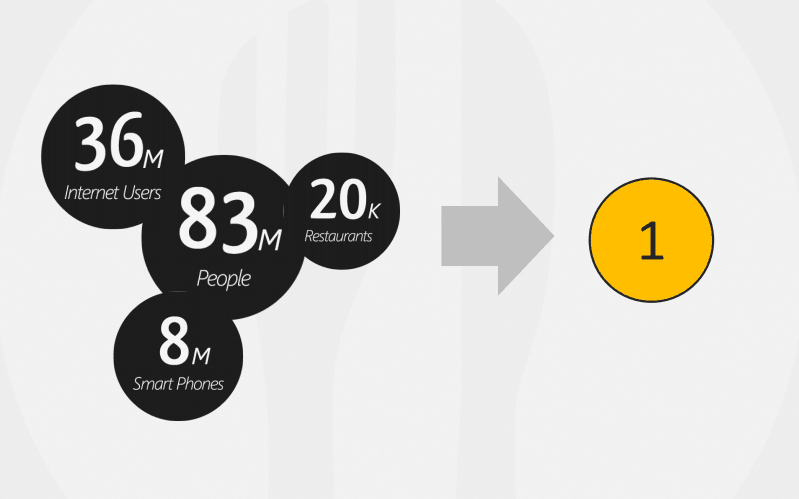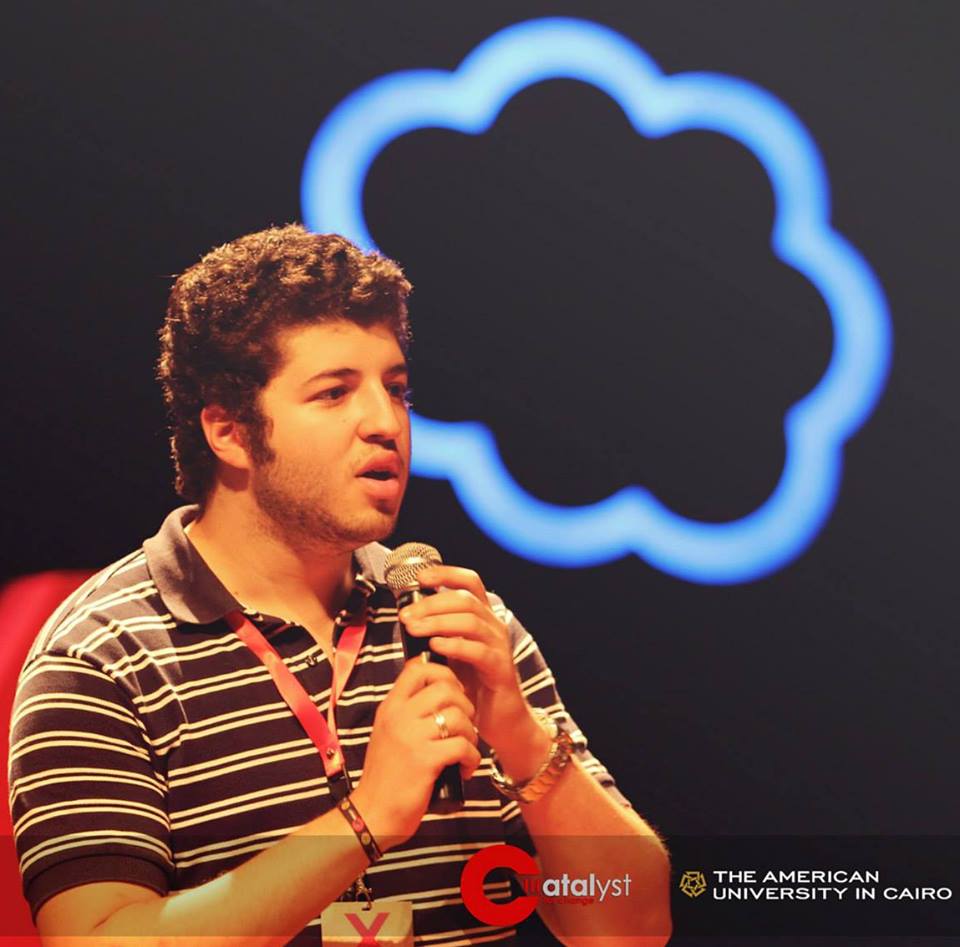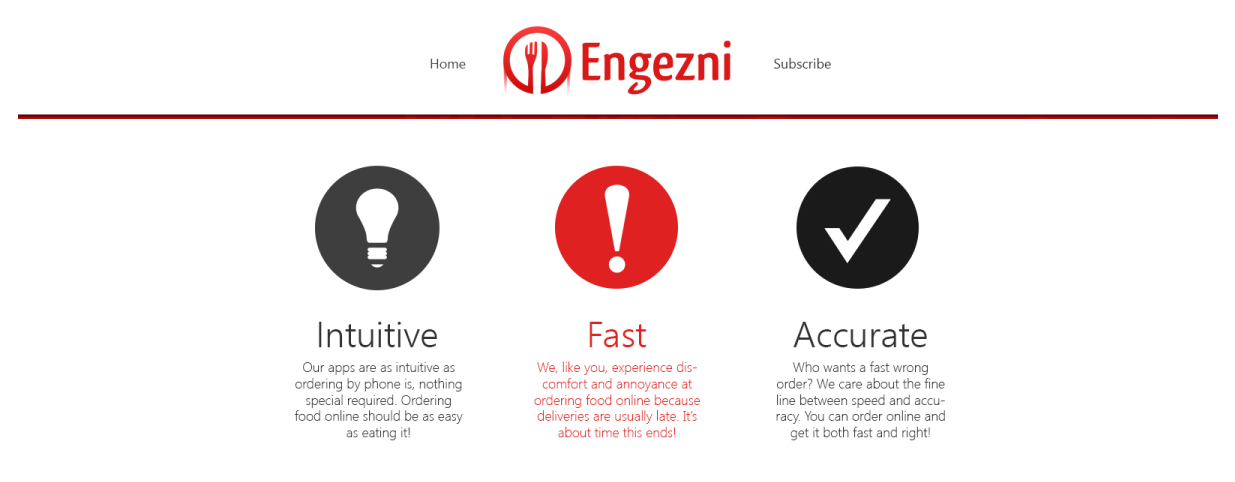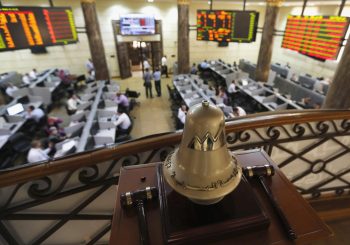By Mostafa Rizk, contributor, EgyptianStreets.com
Sometimes it seems that any news you hear out of Egypt is bad news. Whether it’s about an increasing budget deficit, a new wave of violent clashes or another government screw up, it feels as if everybody is actively trying to make things worse. But that couldn’t be farther from the truth.
For every person out there not doing their job or actively making the country a worse place to live, there are a thousand more who are sick of the politics and stagnation, who just want to see Egypt flourish, and are working tirelessly to make that happen.
The team behind Egypt’s latest tech startup, Engezni, are some of those people.
This February, Engezni won second place at the University Mobile Challenge at the prestigious Mobile World Congress. The Mobile World Congress is the biggest conference for mobile technology in the world, with over 70,000 people making the trip to Barcelona each year.
The conference is host to many activities including exhibitions of the latest in mobile and wearable computing, keynote presentations from the tech world’s biggest CEOs (this year was host to Mark Zuckerberg, Jan Koum of Whatsapp and Virginia Rometty of IBM among others) and of course, the final round of the University Mobile Challenge, an international mobile app development competition for university students in their final year.
Each year, 170 teams from around the world develop apps to compete, with only 14 teams being selected to attend the finals in Barcelona. The winner is judged according to the innovative utility of their app as well as the strength of their business model and the effectiveness of their presentation.
Engezni is a web and mobile app made for users to browse restaurant menus, order food online, and go social about it. In addition to that, it’s an outlet management system that restaurants can use to manage online orders and engage with their customers without intermediaries.
To put it simply, it’s an app that lets you order food and displays your order on a computer on the restaurant’s side, eliminating the human error between placing the orders and receiving the orders on the restaurant side. The idea is simple, but it has never been done the way the Engezni team is doing it.

According to Amr Ashraf, the CEO of Engezni, the application allows users to connect directly with a restaurant,“Most applications that handle food ordering depend on a call center, we send the order directly to the restaurant. On their side, they see a simple webpage that is updated every time they receive an order”.
It all started when Ashraf was in a software engineering class in early 2013 at the American University in Cairo. The professor asked them to think of an idea that would change the community and design a software model around it, so he came up with Engezni based on his frustration with similar services like Otlob that he had noticed while interning at LinkDevelopment (Otlob’s parent company).
“What I didn’t like about Otlob is that its operational model is slow, buggy, and causes hassle to both restaurants and end users,” explains Ashraf.
The slow and cumbersome nature of such services is actually what inspired the name ‘Engezni’, which comes from the Arabic slang ‘Engez,’ meaning ‘hurry up’. After completing his design, Ashraf took another class over the summer, this time in mobile development, where he had to create an app. It seemed only natural to expand on his previous work, so he took the design he had already made and implemented it.
As the app began to take shape, two chance encounters would turn Ashraf’s pet project into a fully-fledged business. The first was with Ahmed Shinawy, a classmate of Ashraf’s from the Computer Science and Engineering faculty. During a conversation, Ashraf mentioned Engezni to Shinawy and after considerable discussion, Shinawy tagged along as Lead UI Designer.
At the same time, through his involvement in TEDxAUC, Ashraf met Hayk Hakobyan, an Armenian businessman a few years his senior. Hakobyan, though originally coming from a Nuclear Physics background, had an MBA and worked in business consultancy. He approached Ashraf with an idea for a food discovery app, which Ashraf found fit perfectly with his food ordering design. They combined their models and Hakobyan joined the team, bringing his ideas and experience to his new role as Business Development Manager.
With an already formidable team, the three spent the next few months hammering out their business plan and solidifying their design before they brought along Nada Beshir as their Food Discovery Manager and Esmail Ahmed as their CTO. The five then formally registered Engezni as an Egyptian company.

With a team of skilled individuals, a plan and a lot of passion, the Engezni team toiled away. One night while up late working, Ashraf received an email from a university professor advertising the University Mobile Challenge, and although he was short on sleep, he didn’t need to think twice before applying and quickly jumped at the opportunity.
“I filled out the application in about 5 minutes” says Ashraf. “The form was just short essay questions about our business. We had been talking about it so much, that I had memorized the answers to all of those questions”.
This was the first of the four filtration stages; at this stage judges go through the applications to determine that they meet all the criteria, fit the theme of the competition and in general, are initially acceptable entries. At the second stage, things get more serious. Each team does a Skype call with a San Francisco investor where they must pitch their idea in 3 minutes. The pitch is designed to test a number of things: whether or not the team has a valid business model, whether or not their app has a prototype and generally how good the team is at presenting themselves.
“They’re trying to narrow it down a lot, being as strict as they can. If you pass the time by 1 second, they stop you. We finished 5 seconds before the 3 minutes ended,” Ashraf said about the call.
The second stage is brutal because it is designed to weed out everyone except for the finalists who get to go to Barcelona. Ashraf credits his team’s success to two factors: “The first is that we have a huge market for our app, at the end of the day we were pitching to an investor who only cares about where the money is.”
It is a common misconception that because of the high poverty rate, Egypt is not an ideal place for tech startups. But according to studies by Nielsen in 2013, 44 percent of the Egyptian population is internet users, with 23 percent of those users accessing the internet via mobile. More amazingly is the fact that the percentage of mobile internet users is up from 16 percent in 2012. That amounts to approximately 36 million internet users and 8 million smartphone users. Add to that mix, a pool of over 20,000 restaurants and you will realize that the Engezni team is tapping into a vastly under appreciated and growing market.
“Egypt is an emerging market”, adds Ashraf, “it might be slowly emerging and may not be up to speed with other countries, but if you look at internet penetration rates, mobile users and Facebook users over the past few years you’ll notice that the numbers are growing rapidly. This is the best time to launch a tech market because there’s no saturation yet.”
However, business models aside, Ashraf is also quick to give credit to his teammates, “The second reason we got through the Skype stage is that Ahmed stayed up the night before the presentation and made a fantastic, unique presentation with UI and design and everything. He’s the one who gave Engezni a face”
After passing the second stage, Ashraf and Shinawy flew to Barcelona for the finals. Since the competition is only for university students, the two 21-year-olds were the only members of the Engezni team eligible to participate.
The finals were split into two rounds. In the first, the 14 finalists (this year there were 15) have three minutes to present their idea to the judges and seven minutes of more detailed questions about the business model and how prepared they are to launch. In the second, three teams are chosen from the remaining 6, this was when the Engezni team had to make themselves stand out.
“Our wow factor was the numbers,” said Ashraf. “We made a slide of the numbers of internet and mobile users and restaurants in Egypt and people were impressed. We also told them that all restaurants in Egypt do delivery which was very surprising for an international audience.”
What really secured Engezni’s victory was that they did more than just talk about numbers: they had a completed application (save for a few bugs) and 20 restaurants in Cairo and Alexandria had already partnered with them. Engezni’s business model allows restaurants to sign up with them at no cost, in exchange for a small percentage of the profits made by selling through their app.
The Engezni team walked away from that competition, not just with a second place prize, but with a new set of business connections, a taste of fame and a drive to succeed that even Egypt’s economic situation can’t stop.
“I won’t lie to you, what’s happening in the country now is making people very worried. When we talk to restaurants, people are afraid to invest.” says Ashraf. “But we’re not going to wait for the country to get up on its feet, we’re putting in our own money and taking the first steps. The great thing about a tech startup is that when you have talented people on your team, you don’t have to break the bank paying for services like development or branding.”
Engezni is also not the first technology company to gain attention since the revolution. Instabug recently won MIT’s Enterprise Forum for the Pan Arab region, CloudPress was acquired by international media company News Corp and local incubators like Flat6Labs are hard at work giving Egyptian entrepreneurs a shot at success.
Yet, what may set Engezni apart from the rest is their ambition. With their launch date approaching, they’re already starting to think about the future.
“We’re thinking of expanding to other big cities in Egypt after we’ve conquered Cairo and Alexandria and possibly into other middle eastern countries,” explains Ashraf. “We’re in it for the long haul. We’re not thinking about making an app, making some money and quitting. We want to be one of the big names right after Facebook and Twitter”
Engezni launches at the end of May 2014. You can keep up to date with their activities by following their page on Facebook.








Comments (19)
Reblogged this on Virtuoso ® and commented:
Go Egypt! Bravo to those guys, hayleen ya shabab :))
There are many talented programmers here! “Hoverchat” is another Egyptian start-up making news 🙂 http://techcrunch.com/2014/03/14/hoverchat-for-android-lets-you-message-your-friends-without-switching-screens/